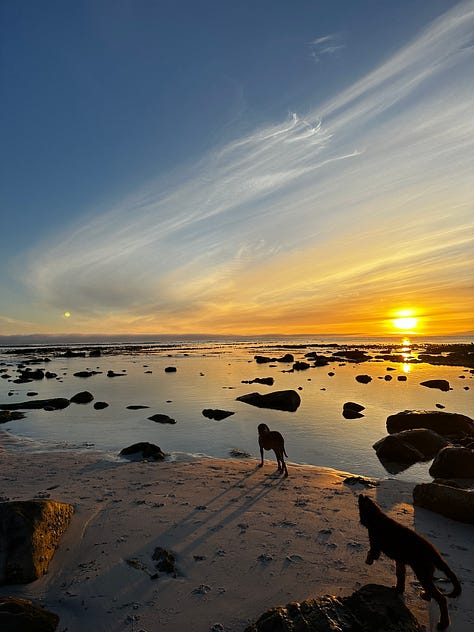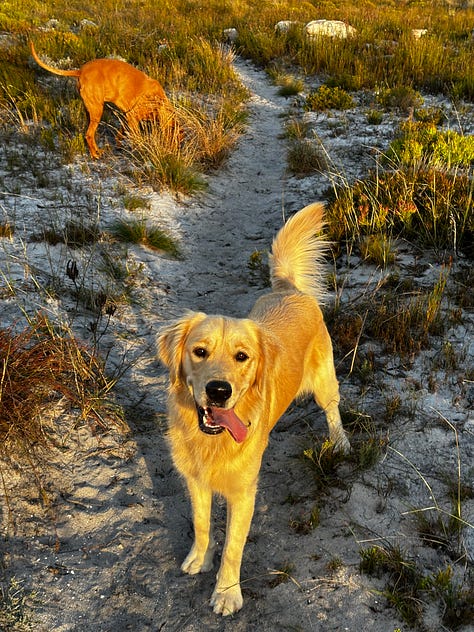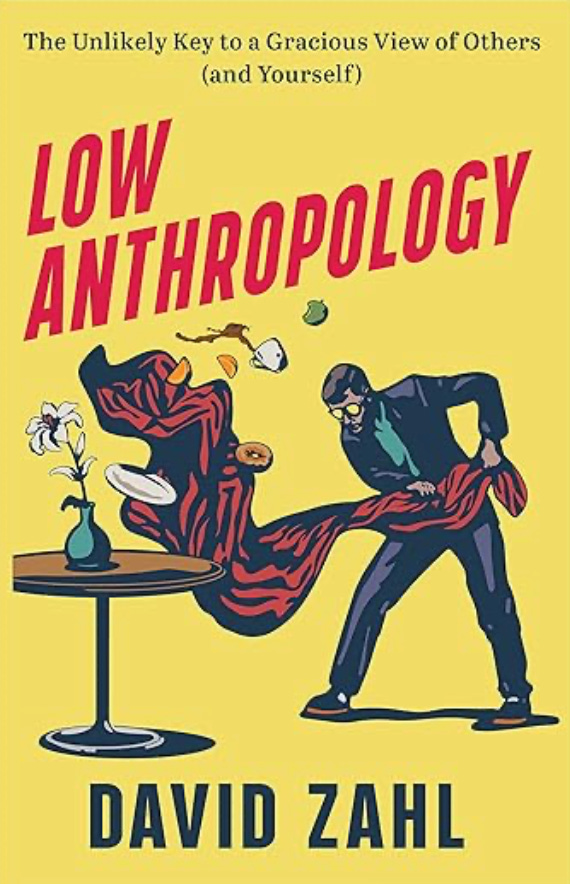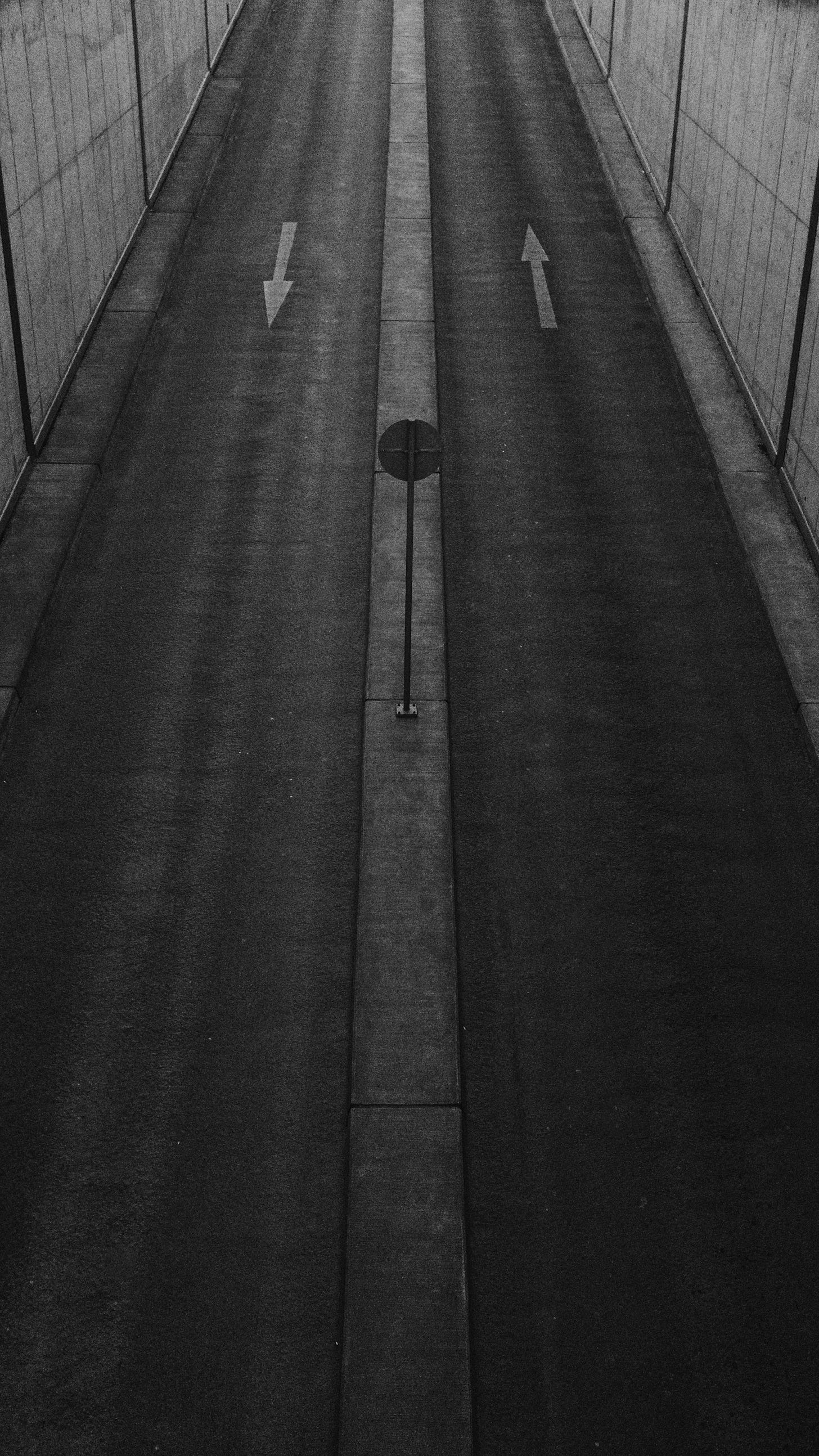The Lectio Letter - Issue #82 - The Way On Is Not The Way Back - Mapping the Seasons of Faith, Pt. 1
"Everything can be taken from a person but one thing: the last of the human freedoms--to choose one's attitude in any given set of circumstances, to choose one's own way."
— Psychiatrist and Holocaust survivor Viktor Frankl
"To grow Old in societies like the United States (a non-wisdom based culture) means your primary responsibility is to get out of the way."
— Stanley Hauerwas
Welcome to Issue #82 of the Lectio Letter. This members-only newsletter is filled with music, film and food suggestions, links, and an article written by yours truly.
Whether you become a paid subscriber or not, I’m very grateful to each of you who read and respond to this newsletter.
In this issue, I’m reflecting on the roadmap of Christian maturity and how in swallowing whole our surrounding culture’s value for youthfulness we resist growing up fearing we will no longer be relevant or valued.
In a broken world we will inevitably face challenges and pain and maturity in the Christian life comes from learning through those rather than just denying them. I’m all for youthful zeal, and not trying to endorse some kind of burned-out apathy but I don’t think we should mistake youthful naivety, as beautiful as it is in the right season, as the pinnacle of Christian maturity, we are going to need a bigger map.
The Lectio Letter is a reader-supported publication. To receive new posts and support my work, consider becoming a free or paid subscriber.
PSA: I’ve heard a number of people have been missing out on the whole email if they use Gmail because the email gets ‘clipped’.
You can see at the bottom of the email if it says “message clipped”, then click “View entire message” to see it all.
You are not getting it all if you don’t see my signature at the bottom.Alternatively, if you don’t want to read this in your email, you can use the substack app (where you can listen to the article read out) or read it online at LectioLetter.com
I hope you enjoy this Lectio article. Feel free to leave a comment or a question after you’ve read it, I love receiving those.
Status Board
Life
We’ve been grateful to be back in Cape Town and things have stayed busy after our recent trip to Lebanon. Lots of catching up, some baby sitting and lots of dog walks as you can see below!






We’ve begun our descent into southern hemisphere winter too which results in incredible sunsets and amazing night skies!
Work
The Teleios participants have been exploring the role of narratives, practises and community in the discipleship process. I’ve been keeping up with grading, but have also been developing some content relating to relational styles and what is called ‘interpersonal neurobiology’. Here’s a great podcast which reflects on the potential for Christians to take on this kind of research and integrate it into our discipleship;
Another resource which is a little shorter relates to the development of attachment styles when we relate to our primary caregivers and how that might set a template for a secure or insecure sense of connection God in adulthood
Reading
I’ve been enjoying (but no getting quite enough time to keep) reading David Zahl’s Low Anthropology. Zahl reflects on the pressure of thinking highly of ourselves and the freedom and need for God that is recognised when we have a more humble and limited view of our abilities;
Many of us spend our days feeling like we're the only one with problems, while everyone else has their act together. But the sooner we realize that everyone struggles like we do, the sooner we can show grace to ourselves and others.
In Low Anthropology, popular author and theologian David Zahl explores how our ideas about human nature influence our expectations in friendship, work, marriage, and politics. We all go through life with an 'anthropology'--an idea about what humans are like, our potentials and our limitations. A high anthropology--thinking optimistically about human nature--can breed perfectionism, anxiety, burnout, loneliness, and resentment. Meanwhile, Zahl invites readers into a biblically rooted and surprisingly life-giving low anthropology, which fosters hope, deep connection with others, lasting love, vulnerability, compassion, and happiness.
Eating
Rachel made this salad sent to us from our friend Lori… It’s delicious.
Ingredients
1/2 cup uncooked quinoa
1 cup vegetable broth or water
5 oz arugula, about 5-6 cups
1 can chickpeas, drained (15 oz)
2 medium avocados, slightly firm is ideal- cut into cubes
1 orange, peeled and chopped
1/2 cup slivered almonds
1/2 cup crumbled feta cheese
1/4 cup olive oil
2 tbsp orange juice
2 tbsp lemon juice
1 clove garlic, crushed
1 tbsp dijon mustard
1 tbsp pure maple syrup
1 tbsp chopped red onion or
shallots
Salt & pepper
Instructions
Add the quinoa and vegetable broth to a sauce pan and bring it to a boil. Once boiling, cover the pot and reduce the heat to let it simmer for 15-20 minutes, until all the liquid is absorbed.
Remove the pot from the heat and it let sit for 10 minutes while you prepare your salad ingredients. After 10 minutes, fluff with a fork and season with a little salt.
While the quinoa cooks, add you slivered almonds to a sheet pan and set them under the broiler for 2-3 minutes to toast. Alternatively, you can toast them in a small pan over a medium flame until they start to brown.
Prepare your salad dressing by combining all of the ingredients together.
Add your arugula to a large salad bowl and toss it together with half of the dressing.
Add the quinoa, chickpeas, oranges, avocado, toasted almonds and cheese and top it with the remaining dressing.
Toss to combine and enjoy!
Listening
Khruangbin came out with their latest album… See the youtube for my favourite song so far!
On a more downbeat note, this latest instrumental piano piece from Olafur Arnaulds has been on 1-track repeat
The Way On Is Not The Way Back - Mapping the Seasons of Faith Pt. 1
Society being obsessed with youthfulness isn’t something new. Carefully curated marketing around the possibility of eternal youthfulness often leads us to believe that we can delay getting older if we just try the next cream, exercise or relaxation method.
Sadly, this effectively leads us as individuals and as a culture to avoid paying attention to what it means to grow up and in doing so, we exchange wisdom for enthusiasm, learning for zeal and groundedness with scatteredness, without a second thought.
As Christians, we may also be affected by this desire to stay young and zealous, but in relation to our faith. The desire can be strong to stay in those sweet beginnings of an early faith where everything feels fresh and full of zeal and wonder, but this early season of faith doesn’t represent the pinnacle of a relationship with Jesus.
The way on is not backwards, and we need a larger map in our minds around Christian maturity.
The Early Seasons of Faith
It is tempting to indulge in romanticism about the early, uncomplicated season of simple, faith-filled trust by forgetting that underneath the surface our new faith is often quite self-serving and not particularly self-aware.
When 9th Century French Christian, Bernard of Clairvaux, sought to help his fellow Christians discern growth in the love of God, he described the early season of faith as "Love of God for Self”.
Our prayers in this season are often urgent and filled with great expectations but are very much focused on our circumstances or on those near and dear to us.
However, God does meet us graciously in this season, giving us a sense of our belovedness and that He is with us, for us, and will protect us. We feel confident that he will answer our prayers and make wrong things right again. In this season, we begin the work of letting Him deal with our sins, reading the Bible enthusiastically, and ingesting every word that those in authority within our Christian community offer. We believe our circumstances are orchestrated by God's perfect will which is for us to be healthy, happy and prosperous.
Lurking underneath the surface, however, is an unspoken assumption around ‘cause and effect’: I pray and good things happen. I do something wrong and something bad happens.
Our own choices can play into these outcomes, but in our naivety, we begin to mistake God for a divine lever. We pull the lever correctly and the right thing happens. There is almost a classic magical superstition at work here, but hidden from view.
While we might never admit to such a crass picture, we manage to 'figure out' Christian life in such a way that we get a handle on it and that process encourages us to change some of the most obvious sin patterns we are engaged in.
During this season we will likely attach ourselves enthusiastically and uncritically to a group, vision or leader who shares our way of seeing faith and the world we live in. In this season of our faith, it is common for our enthusiasm to morph slightly from being about the message of the gospel we originally responded to, towards the particular focus of our group. Without us being consciously aware, our in-group language, priority on a certain kind of mission focus or way of reading the Bible becomes increasingly important to us.
This season finds its full maturity in some form of leadership or productivity. We may not be given positional leadership, but there is a noticeable transition where people increasingly begin to look to us, whereas before we were primarily looking to others. We have taken spiritual gifts tests, Strengthsfinder or Myers-Briggs and have a deep sense that we were made to bring our unique contribution.
Sadly, this journey from salvation to some kind of leadership is often the only map that those of us in evangelical circles have been offered for Christian maturity. We have been saved, we learn about God and the Bible, discover our gifts, and then lead.
The great challenge of having such a small map, however, is that we don't develop depth and character when our goal is simply to be outwardly productive, and this eventually ends up with an inner life unable to support the outer life of influence or leadership responsibility. This is felt by many people as they enter the season of parenthood or high workplace demands, and the pace and demands of life can make it feel like life is happening to us instead of us having stewardship over our time and focus.
An Immovable Object
Those who have observed or accompanied people on the Christian path of discipleship are fully aware that there will be an ‘immovable object’ somewhere in the progression of these seasons. These can take many forms: your own relationship breakdown or marriage betrayal (or this happening to those you respected and trusted in your community); a project or community you poured everything into falls apart or leaves you burned out and discarded; an unanticipated and difficult depression develops in our lives; an illness or death of someone close especially when healing was earnestly prayed for; people we once trusted to be wise and to live with integrity betray our expectations of them; a wider societal shift in response to war, ethics, or politics arises and those you were led by take a side you cannot endorse.
Whatever the circumstances, the immovable object cannot be navigated around. It can only be moved through. It is understandable that in this process, our picture of God, ourselves and those around us often needs to be reconsidered and renegotiated.
What emerges from the experience of an immovable object in life is the need for a deeper inward journey. We begin to recognise that we don't have all the resources we thought we had when it comes to living our life in God, and we start to become aware of realities that are acting on us and seem to be out of our control. Becoming more deeply aware of the challenges of our inner life with God that has been found wanting, we may begin to feel like we are losing faith altogether while, in fact, we are losing our picture of God rather than God himself. Even though this is an important process, the reality remains that it is painful and confusing one.
I have seen many people struggle to navigate a season like this. I do have a deep hope and expectation that Christian discipleship can extend beyond this season, but have yet to find many people who are qualified guides. Sadly, at this point of disappointment with God and others, people can be feel ostracised or abandoned right when they need someone to accompany them: to guide them back into a renewed experience and vision of God, a more accurate picture of their own growth, and a deeper understanding of the world we live in.
The word "deconstruction" has already become an over-used and abused term, and many people who face the inevitable pain of life are not served by having it used at them. It is often used as a put down by those who themselves may secretly realise their own inadequate map of the Christian life doesn't take into account the deep disruption pain and disappointment create. Is there a map beyond disappointment? I'm confident there is, and I'll share a little more of that in the next issue as well as the difficult temptations that come with the experience of hitting 'the immovable object.’
Miscellaneous Links
One minute of Focus
This simple website offers a one-minute repose from the hurry, noise and crowds.
Pictures from the Dakar Rally




Racers compete in the grueling Dakar Rally in Saudi Arabia, one of the most famous, and dangerous, off-road races in the world.
Japenese Photographer Mariko Ohya’s colourful La Lumiere





Tourism in Afghanistan?



Jan at Studio Radio Durans has been exploring rural Afghanistan as a possible tourist location now under Taliban 2.0 rule. I’m not sure that I would be opting for such an adventurous location, but his report did make for some fascinating reading;
Even with advanced preparation, crossing the border into Afghanistan can feel somewhat like jumping into fast moving river at night, with unknown obstacles ahead—once you’ve made the leap the only option is to swim with the flow. How would the Taliban and other locals react to a British citizen visiting so soon after hostilities have ceased?
Artefacts of a prolonged, partially civil, often barbaric war were omnipresent: captured US Humvees positioned at numerous checkpoints, road-side cemeteries honouring those who died in combat, soldiers on motorbikes weaving through traffic carrying flatbread in one hand, an AK-47 in the other, and a victory’s worth of fluttering Taliban flags leaving no-doubt who was in control. All major infrastructure projects we passed along the way had stalled and almost the only new visible construction was in the form of mosques. One local said the government’s plan is to build one mosque at least every five kilometres.
One of my treks/rides took me to the Wakjir Pass, to check out the progress (or otherwise) on the first land route being built between Afghanistan and China. If it becomes a trade-road it will fundamentally alter the dynamic of the Wakhan, will extend Chinese influence (along with other initiatives such as aid and a new clinic). It took us three days of gentle incline to reach a line-of-sight to the border crossing that sits at 4800m
In one encounter, a squad of soldiers from Taliban Badakhshan Border Security overnighted in the same guesthouse as our small group in a Wakhi settlement in the centre of the Corridor. Some hours later I was invited to join the chief of border security and his lieutenants in a private room for a meal of freshly slaughtered goat cooked in an Iranian pressure cooker. The long evening evolved into one of the more memorable conversations of this trip—spanning perceptions of Afghanistan, life in Japan, the value of multigenerational households, religion (I don’t have a faith, but appreciate it’s value to many), and more. To my surprise, their questions overwhelmingly came from a curiosity mindset rather than one of dogma. I find it impossible to imagine residents of my home country being such gracious hosts were the tables turned—given the history of our nations, ideals fought for, and their comrades, friends and family lost to war.
Read the whole thing here
Cocktails in a Rubbish Pit



Gomi-Pit Bar (Waste-Pit Bar) is a temporary cocktail bar that was opened inside a waste disposal facility in Tokyo as part of an initiative aimed at boosting awareness of environmental issues and waste disposal.
Guests came to enjoy their cocktails while taking in the sight of garbage being sorted and prepared for incineration.
Farm Animal Family Photos from Rob MacInnis






See the rest of his impressive work here
That’s all for now…










Thank you dear son in Jesus. Really helpful and well thought through. Keep it coming.
Dad G